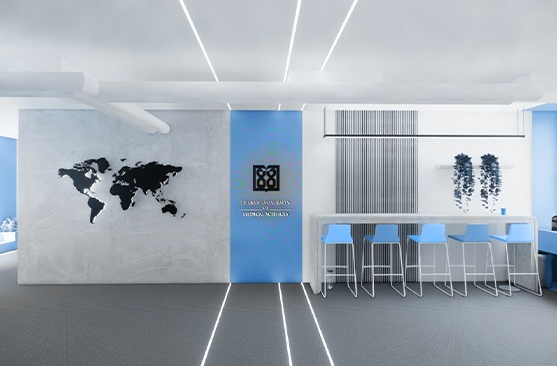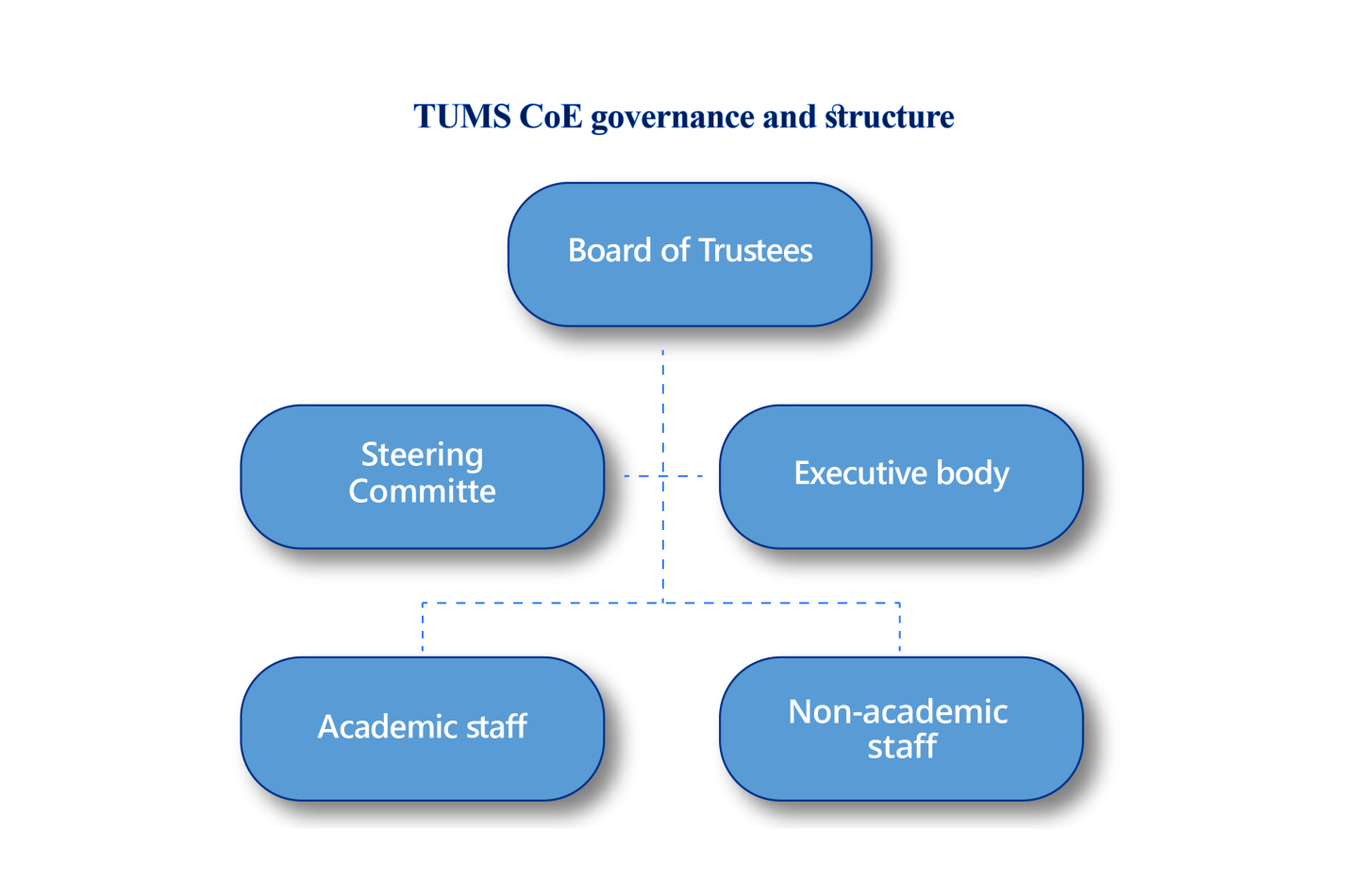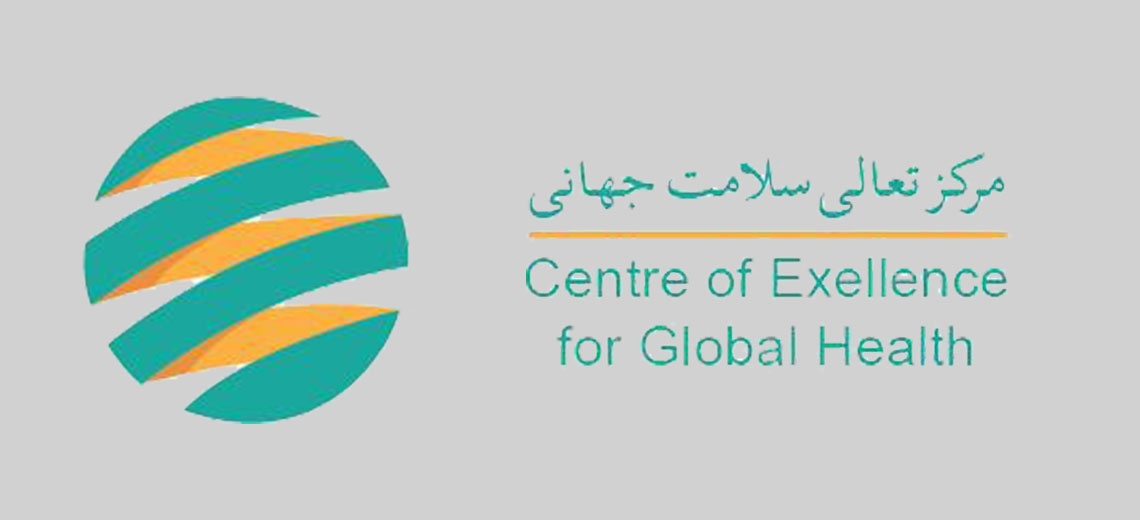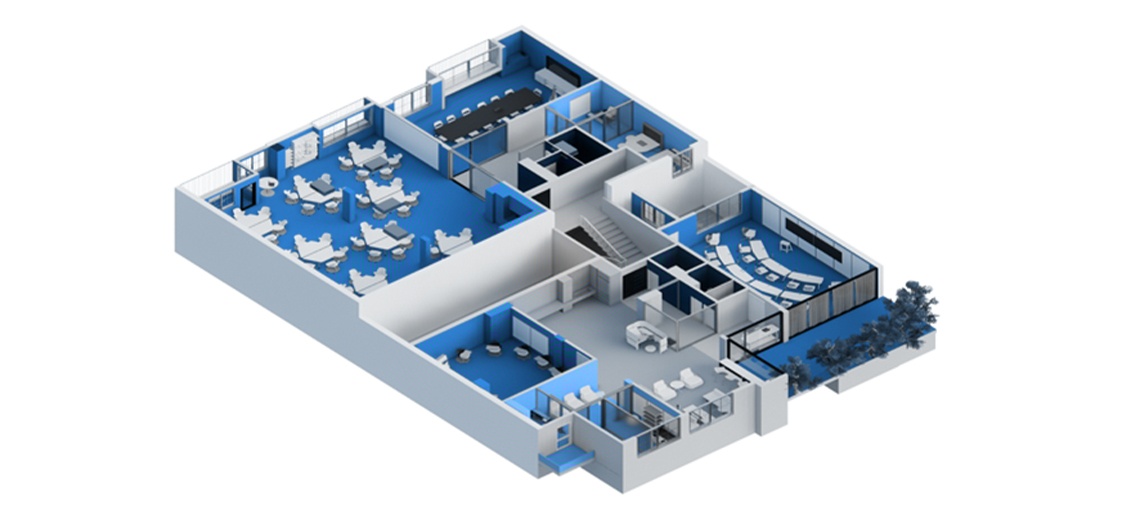Center of Excellence for Global Health Education & Research
TUMS Center of excellence for Global Health Research and Education is a hub that aims to improve the health of communities through education, job training, and research in Iran as the home and East Asia and MENA as the landscape. This center as a network of professionals of global health seeks solutions for global health problems in the East Asia and MENA.
Introduction:
The absence of GH study programs in the region (West Asia and Middle East) and especially in Iran represents a significant gap in training for a generation of health practitioners, policymakers and policy-influencers, who are faced with complex population-health challenges that are unlikely to be met through traditional public health teaching. Nonetheless, a lack of comprehensive view towards sustainable health development, partially due to shortages of GH experts in the region, has resulted in slow and unsatisfactory progress towards SDGs in the region.
Iran is a suitable candidate to be the engine of strengthening of higher education activities in the region in the field of GH. Many countries in West Asia and Middle East have very fragile situation which prohibits them to establish any formal higher education, while Iran has strong portfolio of higher education. Iran has a large proportion of young population who are striving for continuing their education.
TUMS Center of excellence for Global Health Research and Education is a hub that aims to improve the health of communities through education, job training, and research in Iran as the home and East Asia and MENA as the landscape. This center as a network of professionals of global health seeks solutions for global health problems in the East Asia and MENA. Considering the importance of social values in health systems decisions, this center will act according to Iranian social values. Hence, participation, accountability, transparency, equity, solidarity, freedom of choice will be our guide in planning and performing the all of activities.
It will be the first of its kind in Iran and will become the main inter-location for global health scientific partnership with international partners, including many possibilities for young researchers and professionals to deepen their capacities and skills. The center will participate with different groups of the community for finding suitable subjects for educating and research. The process of important activities of the center will be presented in the website of the center to make a clear and transparent picture of the center's actions.
Mission
Our mission is to improve global health through excellence in education, training, research and application of knowledge in the East Asia and MENA.
Vision
Our vision is to be a high level research, education, training and translation hub in Global Health working towards a world in which all people can enjoy health and well-being.


Values:
-
The equality: we aim to decrease the effects of inequalities in our communities. We have a dumpy road in front but we will try hard.
-
Collaborative work problems in global health can only be solved by working in partnerships with different communities, organizations and disciplines to develop shared understandings of problems and their solutions.
-
Innovation: Innovation isn’t only about new things but about old ideas in new situations. We are going to find new methods and keys to have a different look at current global health issues.
Slogan
Improving health worldwide through education, research and
collaboration
Objectives
-
Establish a masters level GH programme with a focus on specific needs in the Region of East Asia and based on blended learning in higher education institutions (HEI) in Iran.
-
Establish long term training courses for professional development in Global Health for policy makers and decisions makers in different sectors as well as in public health in Iran.
-
Conduct projects with a local and/or global perspective.
-
Collaborate with international, national and regional organizations to conduct the global health.

Our Programs
Education
-
A masters level GH programme in Iran, with an emphasis on the health of migrants/refugees. CoE will be a knowledge hub to deliver an innovative and essentially multidisciplinary curriculum in GH. This will be based on the international state of the art (teaching and field based learning) and include issues specific to the region. We pay major attention to the participatory design of the curriculum to ensure a commitment from different stakeholders and future "trainees" that competencies of graduates meet needs of working life. The dynamic changes being witnessed in the world, and new knowledge and understandings emerging on health and its determinants require hence educators everywhere, not only in Iran and in the region, to update them and gain multidi sciplinary understanding on GH.
-
Job training and long term training courses for policy makers (and key stakeholders) to promote not only the core concepts of GH, but actually address the specific needs of refugees/ migrants/ displaced persons in the country. Acknowledging this need, the p roject will plan and deliver training of trainees courses with contents based on the latest knowledge and practical skills via placements and field based casework. Selection and use of best learning methods will be paid particular attention to as well as blended learning.
Research
CoE will conduct projects with a local and/or global perspective. As part of a major university, the CoE encourages students and researchers that advances the field of global health, with an emphasis on the following subjects:
-
Global health diplomacy in the East Asia and MENA
-
Natural disasters and health of communities in the East Asia and MENA
-
The health of people in resource limited settings
-
War and health of communities
-
Sanctions and health of communities in Iran
-
Non communicable diseases in the East Asia and MENA (mental health, cancer, ...)
-
Health of immigrants/ refugees
-
Women's health
and Health policy, health economics, health equity, political economy, vulnerable populations environmental science, health of immigrants/ refugees, social sciences and human rights
Community Service
CoE will participate in global health initiatives in the country and active engagement in community service at the East Asia and MENA. Our center will participate in the global health programs that need active interaction between people and professionals. CoE will hold meetings in the public areas and will choose appropriate subjects for research according to people statements and needs. Coe’s experts will answer people questions about health.
Collaborations
CoE will engage in and foster local and international networks and partnerships. CoE will have a broad range of live relationships that enable center to pursue research and learning collaborations, projects and conversations. Here, we list a selection of key partners under three headings:
-
International collaborations (WHO, Other global health centers of excellence in the world)
-
National collaborations (Medical universities, related research centers, ministry of health and medical education, …)
-
Regional collaborations (related research centers in the East Asia and MENA)

Budget
This center is being co-financed by EU funds within the framework of the Erasmus Programme. Moreover, the center will meet public bodies for gathering financial resources. This work will be a part of center's role in keeping the solidarity soul.
Governance
The center will have 3 governing bodies including:
-
Core body (board of trustees): at least 5 active and elite professors with good scientific background in the related disciplines (health policy, healthcare management, health economy, social science)
-
Executive body: Head of the Center, Director of the Center and Financing manager
-
Steering body: A combination of some members of core body and executive body.
Staff
Academic staff
Professors from the Tehran University of Medical Sciences and other medical universities in the country including Iran, Kerman and Tabriz Universities of Medical Sciences will be invited to teach. Moreover, experienced professors from other countries will be invited on some international health topics. These professors may teach face to face in the center or online.
Non- academic staff:
-
Administrative staff (at least 2 person)
-
Director of the Center
-
Financing staff (at least 1 person)
-
Marketing staff (at least 1 person)

Facilities
Library and Information Services
The CoE Library and Information Services provide a full array of modern technological access to print and electronic information through its online catalog. Databases and full-text journals may be reached by any connected computer on campus, such as faculty offic es, Office of Information Technology (OIT) computer labs or any library computer and off campus by logging on through the proxy server.
The Library will provide remote access to many electronic databases and online journals just like other libraries access in TUMS. Among the more popular databases are: Web of Sciences, Scopus, Ovid, Science Direct, ProQuest, SAGE
Simulation Laboratory
Simulation based training (SBT) such as computer screen simulations, high-fidelity manikins, and virtual reality simulat ors has been demonstrated to provide effective learning and is increasingly being integrated into healthcare provider education. Global Health Security (GHS) responders often have few opportunities for critical skill development and sustainment. Simulation can provide just-in-time training and refresher training, which potentially would reduce decay of critical skills. Simulation can also reach individuals wherever they are during mobilization for disaster relief in remote areas, including team training of individuals even before the team is geographically assembled. In comparison with no intervention, technology-enhanced simulation training is consistently associated with large effects for outcomes of knowledge, skills, and behaviors.
TUMS CoE will establish a Simulation Laboratory in which through different simulation training such as computer screen simulations, high fidelity manikins, and virtual reality simulators learners will benefit from developing knowledge, skills, and attitudes while protecting endangered population, maximizing training safety, and minimizing risks. Various modes of simulation ranging from part task trainers, computer-based interactive systems, computer-enhanced high-fidelity manikins, and virtual reality simulators ar e expected to be delivered by TUMS CoE Simulation Laboratory.
Computer Site
The CoE computer site will provide high-speed data network and computing resources for campus-wide instructional and research activities, as well as university business operations . Computing resources provided by the CoE Office of Information Technology (OIT) include 50 student computer labs, accounts on multi-user systems that provide access to programming tools, utilities, e-mail, file transfer, online documentation, Internet acc ess and online student services. In-house IT professionals are available to provide assistance to students, faculty and staff.
Virtual Platform
The CoE Virtual Platform serve undergraduate and graduate level GH related courses to off-campus students. Class es produced by the virtual platform will be available online, and students registered in these classes may view the lectures at any time. Assignments are delivered and returned using e-mail, or the messaging feature of the learning management system. Stude nts take the exams off-campus at a convenient time with a proctor. All courses delivered by the Virtual Platform will be fully accredited and will cover the same materials and learning objectives as on-campus classes.
Systems Management
SPH-TUMS CoE will have written procedures for all of its policies and actions, with responsible person for each procedure. This has the added advantage that if staff undertaking particular roles leave or are unavailable at short notice, other staff assuming these role s will know exactly what is expected of them. This applies in particular to procedures for the recruitment, enrolment and monitoring of attendance and research, teaching and other academic progress of students.



